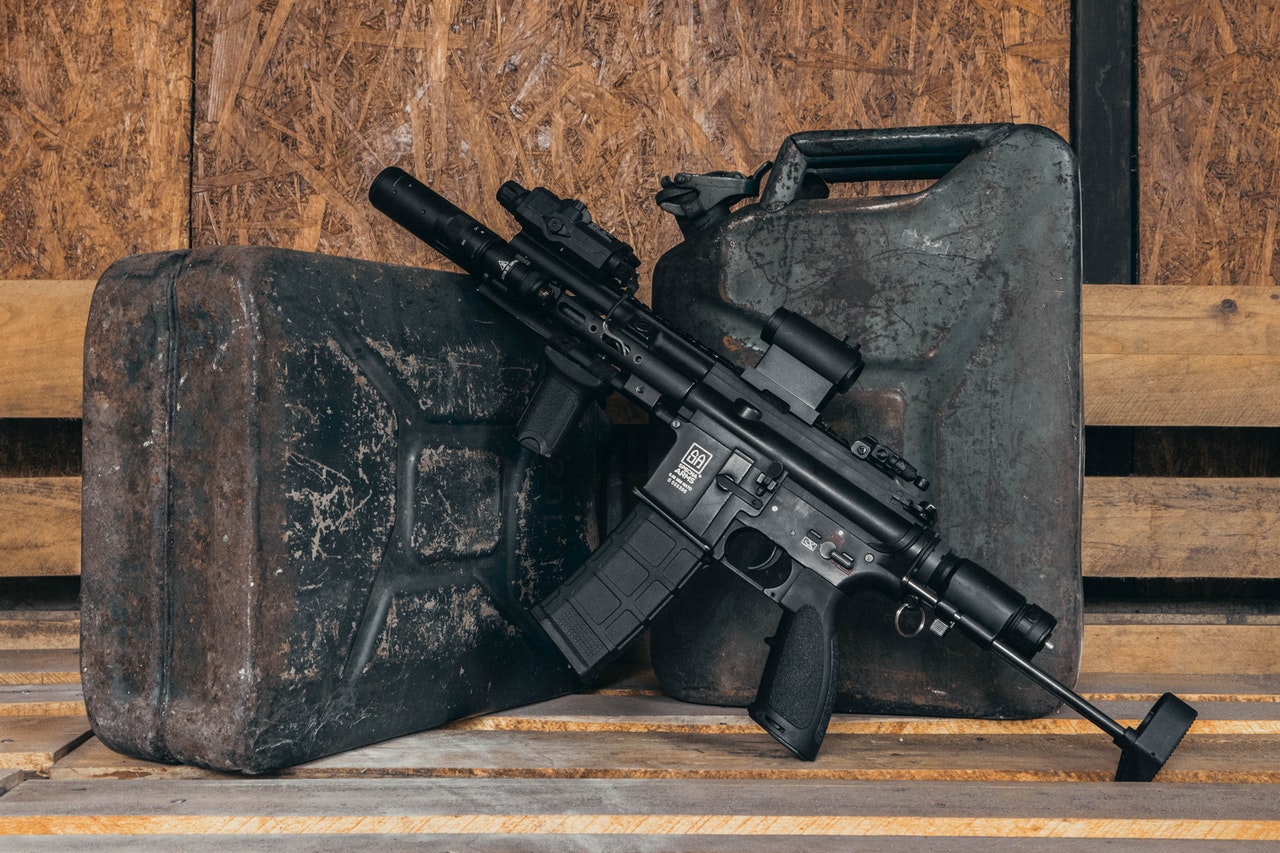Can a Firearm be Carried in a Commercial Vehicle
Posted by Jessica Koenes on May 27th 2022
Can a Firearm Be Carried in Commercial Vehicles?
What federal law has to say about transporting guns, and why all CDL drivers should know the answer.
Nowadays, truck drivers are always on the go. They have to be ready for anything! But can you bring your handgun with you? This is one question that often comes up in conversations about gun rights and restrictions across state lines.
Never Assume
Being a truck driver is an intense job. There are certainly dangers to the profession. There have been stories of truck robberies, hijackings, and even murders. Large sums of cash can be invested in the items you are transporting.
Due to the risky nature of the job, it is no surprise that many truck drivers carry. There can be large sections of travel where there is no phone reception, and if you are placed in a dangerous situation, you will want to protect yourself. There are extended periods when you are alone on the road as a truck driver. Not to mention the risk of finding a good place to park and sleep for the night.
It can be dangerous to be out on the road, and protection is important, but be aware of the specific state firearm regulations before you travel. It is never a good idea to assume you are legally carrying your firearm. Unfortunately, there is not just one simple answer to whether a firearm can be carried in a commercial vehicle. It is a complex situation that many commercial vehicle operators find themselves in. So let’s take some time to explore the answer and what you need to know as a CDL.

Travel gun, by Tóth Viktor, licensed under Pexels
Commercial Vehicle Operator Rights and Regulations
There is no specific federal government law that prohibits the carrying of a concealed weapon by commercial vehicles. That does not mean it is that simple, however. As a CDL, you must still follow and obey the local laws of each state you enter. Every state has its own weapons regulations. Some states do not allow firearms without the proper documentation. If a driver requests a permit and is denied, then alternative weapons should be considered.
Alternatives to consider if denied a firearm permit:
Knife
A simple folding tactical knife can be an easy weapon to keep handy as a commercial truck driver. Knives are powerful weapons that can do a lot of harm if put in a bad situation. Unfortunately, if you have a knife as your only weapon of choice, you will need to be comfortable with the idea of using it in a close-quarters scenario. Knives are ideal for doing extreme damage. But, they are difficult with the risk of proximity it puts you in with an assailant.
Pepper Spray
This stuff is strong. Luckily, it has more potential to put some distance between you and an attacker. This effective self-defense weapon will affect the eyes, causing them to swell closed and making it difficult to breathe. It is a cost-effective weapon of choice, but be careful with this stuff. Make sure it is pointed in the right direction and get yourself out of the way once deployed. The backlash of the spray could leave you in an incapacitated state if you are not careful.
Stun Gun
This is a great alternative if you are defending yourself somewhere with wind or rain. Where the pepper spray will become ineffective with weather conditions, the stun gun will stay true and give you protection.
It is completely understandable why you would prefer to have a firearm as your weapon of choice. Trucking companies truly understand the risks and the reasons why their CDL’s want a gun with them while they work. Unfortunately, there are a lot of rules and regulations regarding firearms and travel within state and country borders. Some companies completely forbid any weapons in their trucks. Make sure you find out what the safety regulations are within a company that is looking to hire you. Your safety is important, and a corporation should value your rights to maintain a safe work atmosphere. Safety comes first.
States that Honor Firearm Permits
Assuming you own your firearm legally, you should have the proper documentation for your firearm. Most states do not require that you register your firearm, but if you are in a state that does, be responsible and have your firearm properly registered. Unfortunately, not every state will honor your permit when you cross state lines. You can stay up-to-date and find out which states honor permits and which ones will not by checking out U.S. Carry. You can find an interactive map that will keep you up-to-date about which states honor permits across state lines.
- States that Honor Firearm Permits: Alabama, Alaska, Arizona, Arkansas, Colorado, Florida, Idaho, Indiana, Iowa, Kansas, Kentucky, Louisiana, Maine, Michigan, Mississippi, Missouri, Montana, New Mexico, North Carolina, North Dakota, Ohio, Oklahoma, South Carolina, South Dakota, Tennessee, Texas, Utah, Vermont, Virginia, West Virginia, Wisconsin, Wyoming
- States that do NOT Honor Firearm Permits: California, Connecticut, Delaware, District of Columbia, Georgia, Guam, Hawaii, Illinois, Maryland, Massachusetts, Minnesota, Nevada, New Hampshire, New Jersey, New York, Oregon, Pennsylvania, Puerto Rico, Rhode Island, Virgin Islands, Washington, American Samoa, N. Mariana Islands
This list is subject to change, so check out the website for up-to-date information. You can find this at https://www.usacarry.com/concealed-carry-permit-reciprocity-maps/#concealed-carry-reciprocity. Just remember that there are some locations within the U.S. where firearms are prohibited. Read signs when you enter parks, and remember that most military bases and state parks will not allow guns on the premises.
Crossing Borders with Firearms
You cannot have a firearm when crossing borders. If you are a cross-border driver, do not bring a firearm with you. There are big consequences for entering a country with a firearm without the proper documentation and permissions. Hefty fines and even jail time can be a consequence.

border control, by Geralt licensed under Pixabay
Conclusion:
In a job that is full of danger, you need to know your rights. Trucking can be a dangerous profession, and keeping safety as a priority is imperative. Look at your company's weapon regulations. Find out what route you are taking before you travel. Check out the website to see if they honor your documentation across state lines. Make sure your proper documentation is in order for your firearm. It is a good idea to keep backup weapons as an alternative to firearms in your truck. The regulations from trucking companies, states, and the federal government can make carrying a firearm as a trucker very difficult. Especially when taking routes that cross state or country lines. Your safety is important, so take the time to make sure you can carry your weapon of choice.
References:
https://www.truckdriveracademy.com/can-a-cdl-driver-carry-a-firearm/
https://thefirearmfirm.com/carrying-in-a-commercial-vehicle/
https://cdllife.com/2020/truck-drivers-gun-rights-by-state-2020/
https://www.usacarry.com/concealed-carry-permit-reciprocity-maps/#concealed-carry-reciprocity
https://urbansurvivalsite.com/9-weapons-besides-guns-save-life/
Related Blog: What is the best way to lock up your gun on a motorcycle?
About The Author
Jessica Koenes is a firearm enthusiast and gear reviewer for Cedar Mill Fine Firearms. She focuses on providing readers with insights to select effective tools for firearm safety and performance.
Cedar Mill Fine Firearms offers products such as Rifle & Pistol Cases, Gun Case Locks, and AR-15 Accessories.
